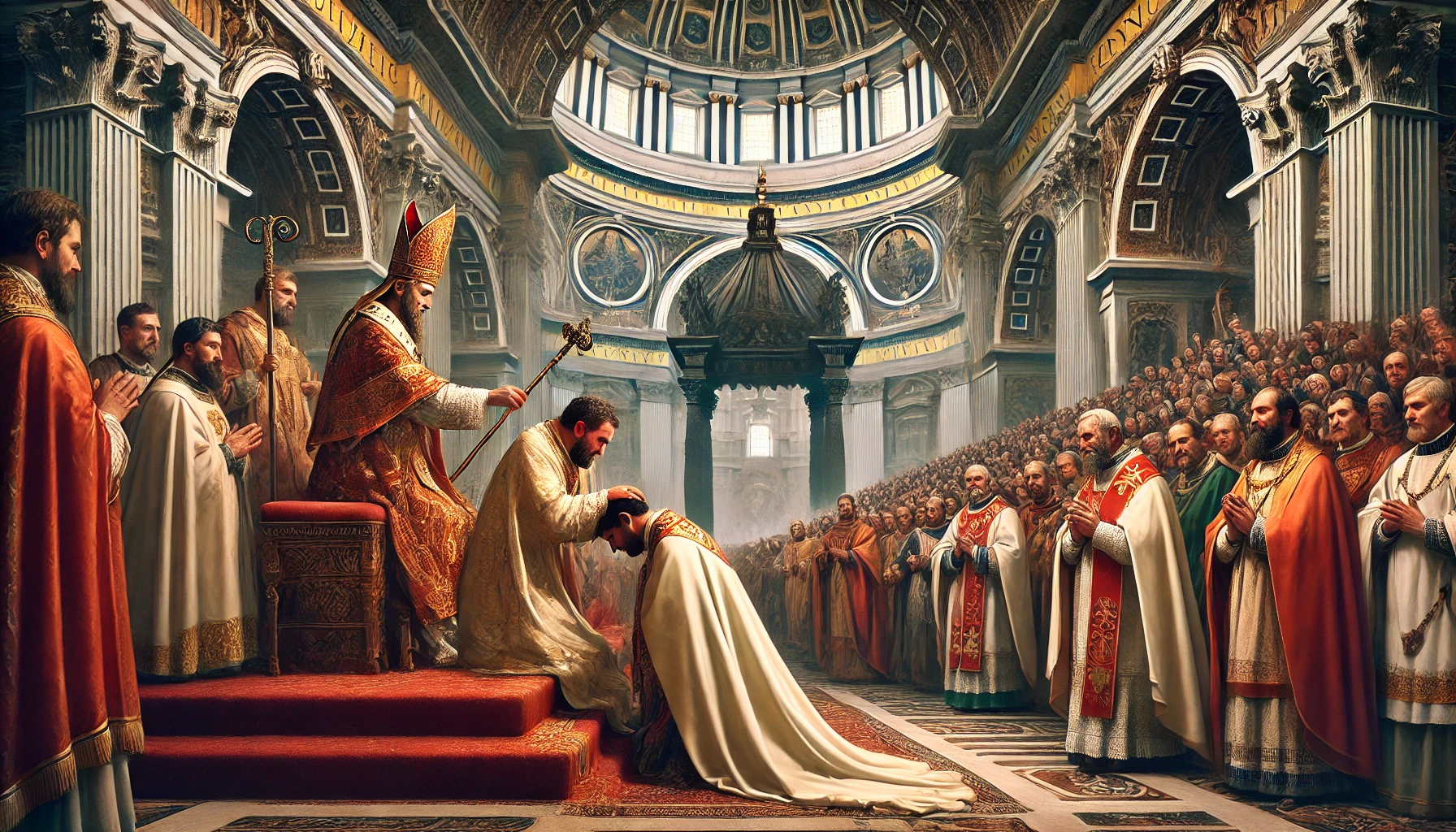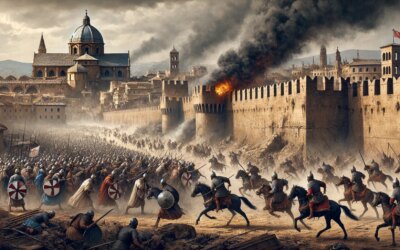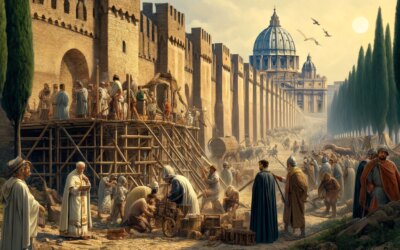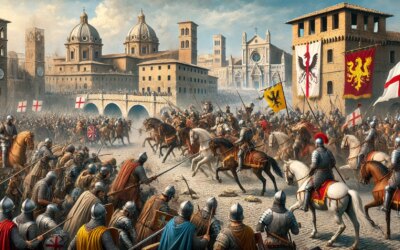A New Alliance Between Church and Kingdom
The mid-8th century marked a pivotal moment in European history when the alliance between the Frankish kingdom and the papacy reshaped the political landscape of Rome and beyond. In 754 CE, Pope Stephen II anointed Pepin the Short as King of the Franks, solidifying a relationship that would lead to the creation of the Papal States and redefine the balance of power in medieval Europe.
Pope Stephen II’s Journey to the Frankish Court
At the time, Rome faced a growing threat from the Lombards, who sought to expand their control over central Italy. The Byzantine Empire, traditionally Rome’s protector, was unable to offer support. Desperate for aid, Pope Stephen II took an unprecedented step—he traveled north to seek the assistance of Pepin the Short, the newly established ruler of the Franks.
The Anointing of Pepin
In a grand ceremony held at St. Denis in 754, Pope Stephen II anointed Pepin and his sons, Charles (the future Charlemagne) and Carloman, as divinely sanctioned rulers. This anointing granted Pepin legitimacy as king and reinforced the idea that Frankish authority was tied to the blessing of the Church.
The Birth of the Papal States
In return for papal support, Pepin waged a military campaign against the Lombards, successfully defeating them and restoring key territories to the pope. In 756, Pepin officially granted these lands to the papacy in what became known as the “Donation of Pepin.” This act laid the foundation for the Papal States, a theocratic realm ruled by the popes for over a thousand years.
A Turning Point in European History
The coronation of Pepin and the formation of the Papal States had far-reaching consequences. It strengthened the Church’s political power, set the stage for the Holy Roman Empire, and established the precedent of papal involvement in European governance. This alliance between the Franks and the papacy would continue under Charlemagne, further shaping the medieval world.
The Enduring Legacy of Pepin’s Coronation
Pepin’s anointing was more than just a royal ceremony—it was the beginning of a new political and religious order in Europe. The partnership between the papacy and the Frankish kings reshaped Rome’s influence and ensured that the Church would play a central role in shaping medieval Christendom.






